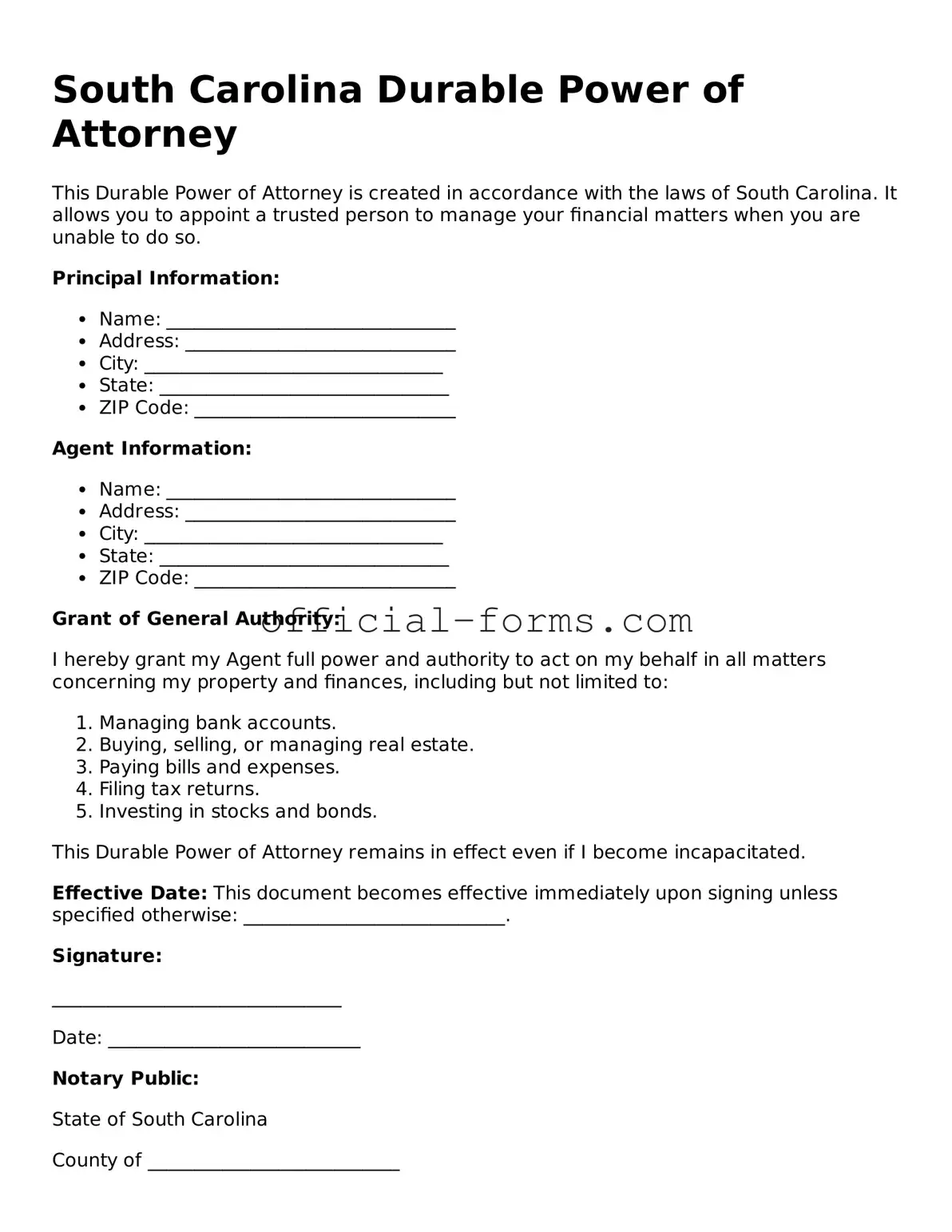Official South Carolina Durable Power of Attorney Document
A Durable Power of Attorney form in South Carolina is a legal document that allows an individual, known as the principal, to designate another person, called the agent, to make decisions on their behalf in the event they become incapacitated. This form remains effective even if the principal is unable to make decisions due to illness or injury. Understanding the specifics of this form can help individuals ensure their wishes are honored when they are unable to communicate them directly.
Open My Durable Power of Attorney Now

Official South Carolina Durable Power of Attorney Document
Open My Durable Power of Attorney Now
Don’t leave your form incomplete
Finish Durable Power of Attorney online quickly from start to download.
Open My Durable Power of Attorney Now
or
➤ PDF
